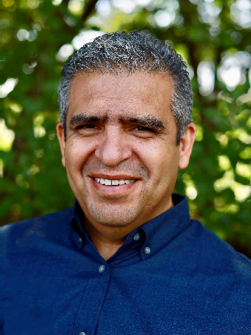The growing diversity of the US population requires providers become as adept as possible in delivering culturally and linguistically appropriate services. This interactive training will teach participants about the National Culturally and Linguistically Appropriate Services (CLAS) Standards and why they are vital to improving care, reducing disparities, and advancing health equity, as well as how they can be implemented in your organization.
All sessions in this series will take place virtually from 3:00 PM–4:00 PM CT / 4:00 PM–5:00 PM ET. Please visit the RHRP series landing page for more information and registration for all sessions in this series.
Those who fully attend all 13 hours of the RHRP series will be eligible to receive a total of 13 NAADAC continuing education (CE) hours. NAADAC CE certificates will be sent to qualifying participants via email within 1-2 weeks after the conclusion of the training.

Alfredo Cerrato is the Senior Cultural and Workforce Development Officer for the Center for Health Enhancement Systems Studies (CHESS) at the University of Wisconsin–Madison. He currently manages Intensive Technical Assistance (ITA) projects for addiction, mental health, and prevention at the Great Lakes Technology Transfer Centers funded by SAMHSA. He is a Subject Matter Expert (SME) and Trainer of Trainers (ToT) of the National Culturally and Linguistically Appropriate Services (CLAS) Standards and other culturally related topics. As a senior consultant for the NIATx Foundation, Mr. Cerrato specializes in the relationship between the National CLAS Standards and Process Improvement, focusing on organizational change, cultural communications, worldview dynamics, and conflict resolution. As CEO of various NGOs, Mr. Cerrato has 25 years of international relations experience and has conducted advocacy, policy, and disaster relief work in collaboration with multiple governments across the globe.
The Great Lakes A/MH/PTTC is offering this training for individuals working in HHS Region 5: IL, IN, MI, MN, OH, WI. This training is being provided in response to a need identified by Region 5 stakeholders.